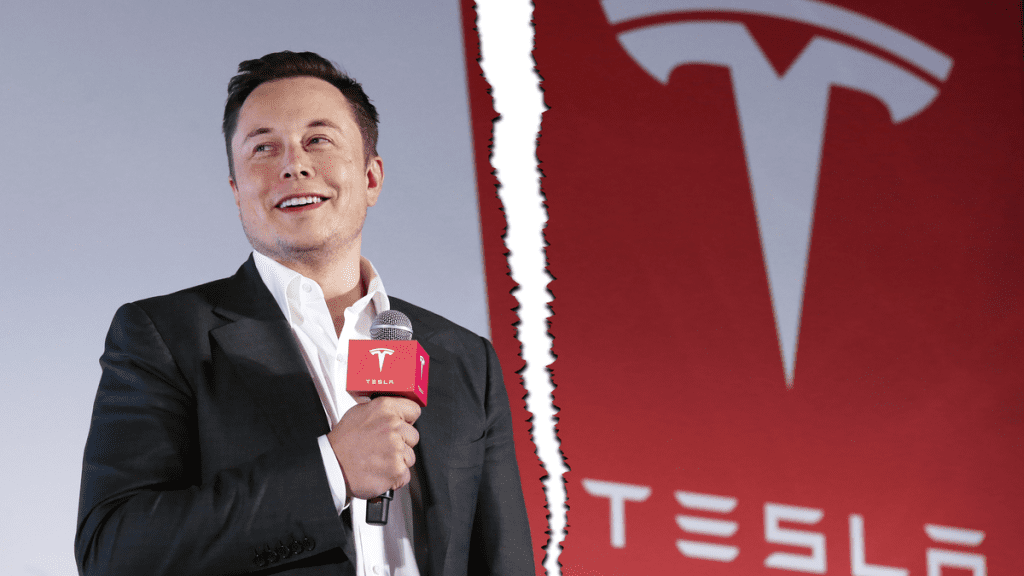What Would Tesla Look Like Without Elon Musk?

Photo: Nora Tam/South China Morning Post (Getty Images)
Every day, it seems Elon Musk and Tesla drift further apart. Musk is continually starting or buying companies and diluting his stake in the automaker — both in terms of attention and the number of Tesla shares he owns. After Musk sold even more Tesla shares today, he reportedly owns a mere 13.4-percent stake in the company he pretends to have founded. And it’s no secret that he’s considering leaving the role of Tesla CEO entirely.
But there’s a problem: Elon Musk is Tesla. He may not have founded the company, but he grew it into the conversation-dominating brand it is today. All the evangelists, the influencers, the social media video posters that replaced the company’s PR department — they’re all wrapped up in Musk’s personal brand as much as Tesla. If Musk leaves, either by his own choice or due to outside forces, what happens to Tesla?
Photo: SUZANNE CORDEIRO / AFP
Tesla had a massive head start in the EV game, creating electric cars that were luxurious, desirable, and appealing to a high-end clientele long before any real competition showed up. Sure, we had the Leaf, but its compact size and limited range didn’t appeal to American drivers. The Model S did. Tesla became the face of electric cars in the United States, and gained a following among car enthusiasts, tech enthusiasts, and trend-chasers as a result.
But as the years rolled on, Tesla’s lineup stagnated. Its long-promised 4680 battery cell, the company’s biggest innovation since the Model 3 debuted in 2017, still has yet to make the impact Musk promised (and now it seems Tesla is walking back that promise anyway). Established automakers from around the world are meeting or beating Tesla’s performance and range.
Photo: STR / AFP (Getty Images)
Until now, none of that has been an issue for Tesla. The company’s hardcore fans are devout, fully adhering to the Tesla dream. After all, this is the company of the future — led by the man of the future. Elon Musk is going to convert us all to green energy, he’s going to save the planet, he’s going to bring humans to Mars. More than any gimmick or unique design, Musk is Tesla’s market differentiator.
So what happens when he’s gone?
Photo: Frederic J. BROWN / AFP (Getty Images)
Take away the sycophants, and Tesla’s target market is basically what it was when the original Model S launched in 2012: upper-middle-class suburbanites with an ecological bent. Without a never-to-arrive $35,000 Model 3 or $25,000 entry-level model, the company can’t really market itself on cost savings. Tesla makes luxury products at a luxury price point for luxury buyers.
But aside from the occasional increase in horsepower or a random interior or infotainment upgrade, Tesla hasn’t revamped or redesigned any of its vehicles in several years. Today, luxury EV buyers have a growing constellation of options, from Genesis, Lexus, even Cadillac — established brands with dealer networks and robust supply chains. These automakers offer fit-and-finish to match a luxury price point, cars where repairs don’t involve months of waiting. When regular, normal luxury brands start making regular, normal luxury cars that just happen to be all-electric, Tesla’s jig is up.
So, Tesla without Musk is smaller, both in sales and in market cap — without a visionary futurist CEO, the brand’s market valuation goes from “buzzy tech startup” to “niche carmaker” in an instant. Maybe Tesla can remain a small player in the luxury market. Or maybe the company gets bought by an established automaker that wants the electric-drivetrain IP — and the U.S. factories, which are especially important for EV tax-credit eligibility under the Inflation Reduction Act.
A conglomerate like Volkswagen Auto Group could certainly use that tech and those factories. A big brand like Toyota, which has capital to spare and is badly lagging in the EV marketplace, could easily plot a purchase — and return to NUMMI in the process. If Musk leaves, or if the board forces him out, Tesla may cease to be the independent, influential, unpredictable company we’ve come to know.



